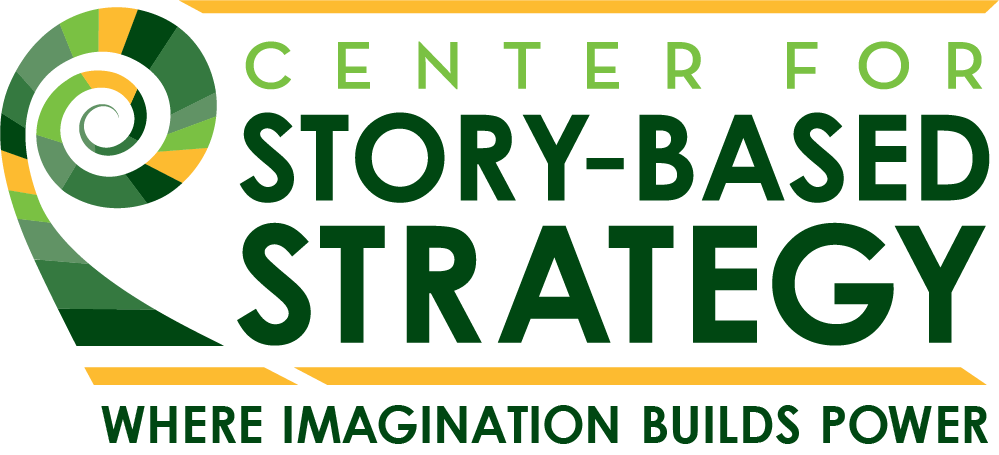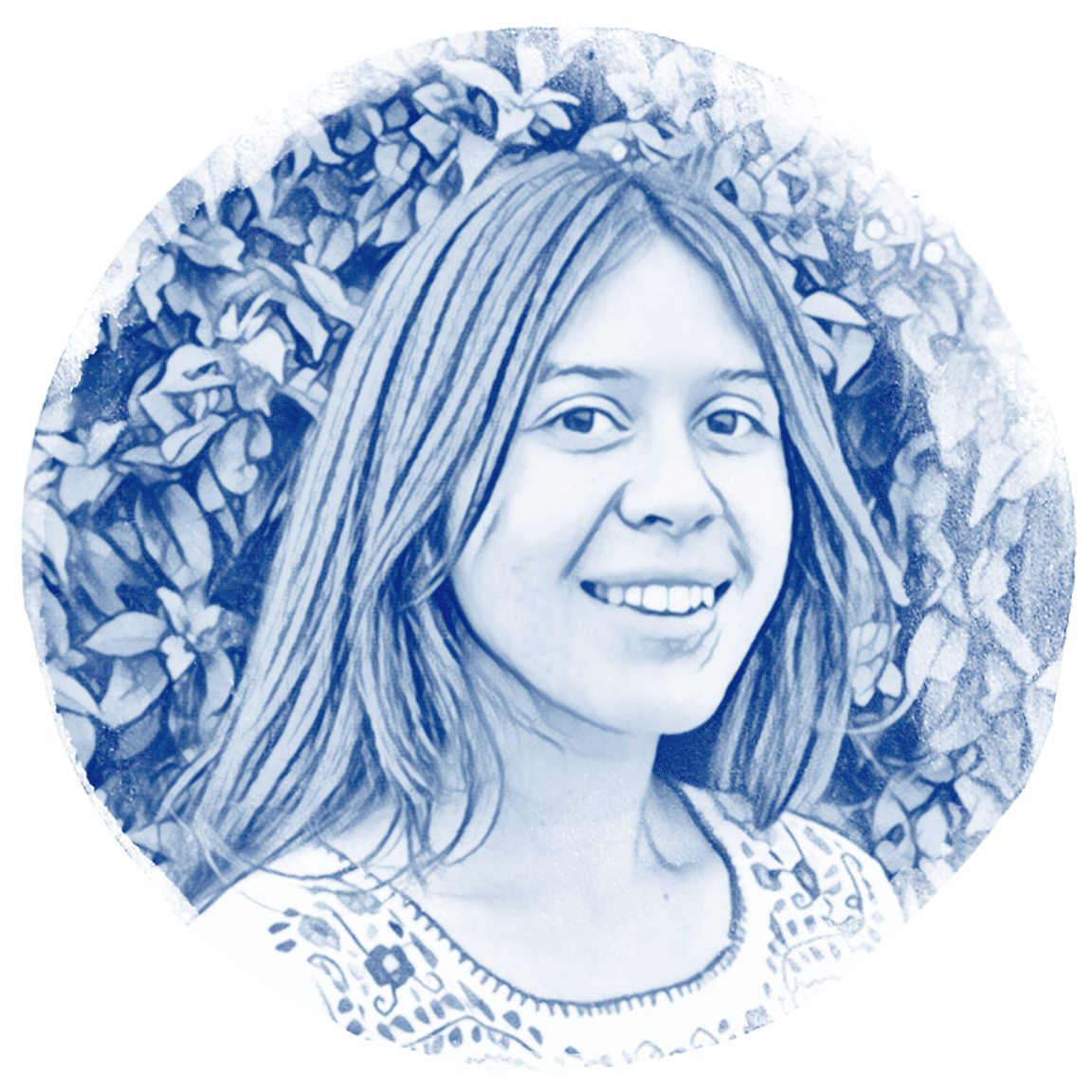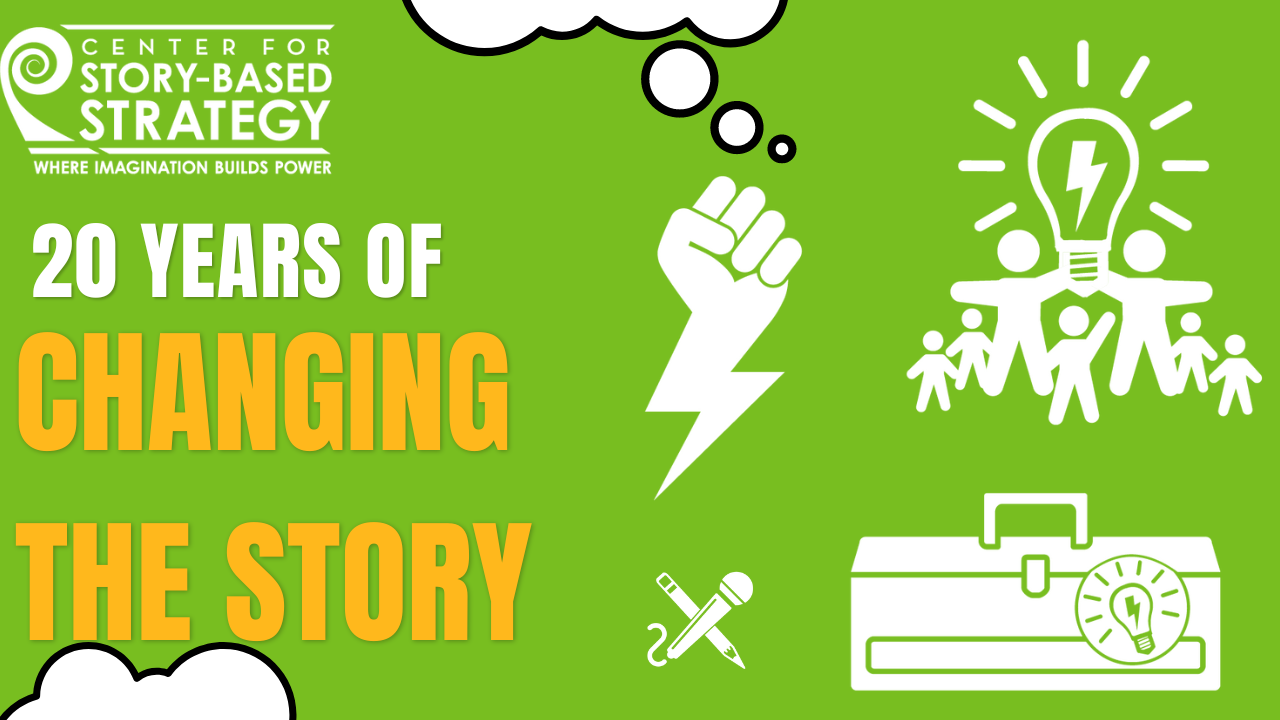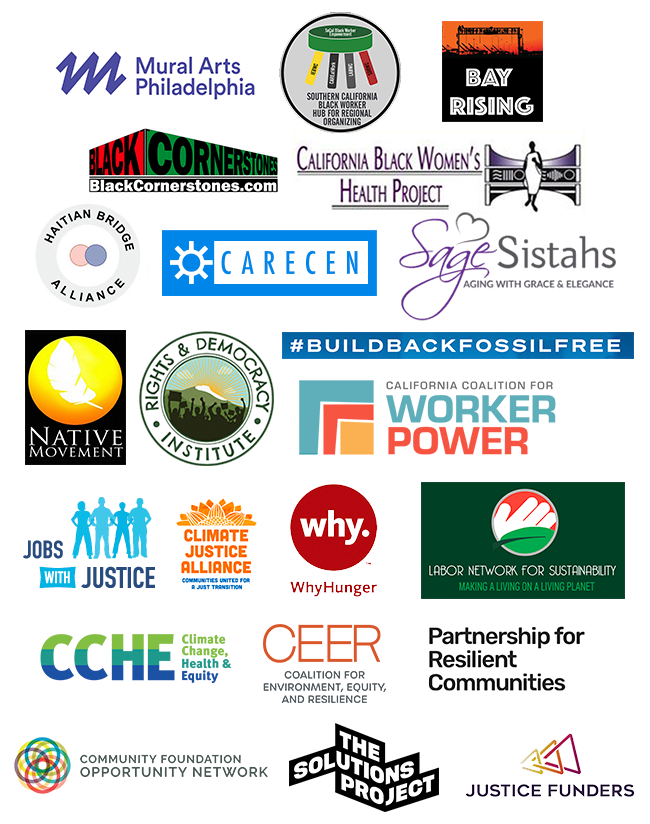Jordan Salcido is the County Youth Climate Commissioner with LA County and is hosting community gatherings on an imminent environmental justice campaign. She is using tools like Narrative Power Media Analysis, Battle of the Story, and Fairy Tales to envision innovative and cultural actions that put pressure on decision makers in LA.
Sarah Glover is the Director of Political Education & Research at Rising Majority for the Rising Majority and is integrating Story-based Strategy tools into political education and comms work of a Rising Majority to make more accessible political education materials for the broad coalition.
Jenica Garcia is a Filipino-American organizer with Lavender Phoenix. This year, LavNix (Lavender Phoenix) will launch a campaign, Care Not Cops, to call attention to SFPD’s rising budget. Jenica is using CSS tools to support art making and cultural production for this campaign that will launch during this year’s PRIDE gatherings.
k. rae (she/her) is a transdisciplinary artist, cultural strategist, and poet. She was a 2024 Liberation Generation fellow with the Center for Story Based Strategy and got her start in poetry with DewMore Baltimore on the City Wide Youth Poetry Team. She is the author of the interactive poetry collection a world for us and the chaplet (beamphrase)(circles). She spends a lot of time thinking about birds and other undisclosed topics.
Learn how Story-based Strategy helped Maya Chupkov kickstart her amazing podcast Proud Stutter.
Skylark aims to inspire and equip femme food workers of color, especially Black femmes, to divest from capitalism in their daily lives and explore their value outside labor.
By framing it not as we're going to lose or they're going to win or anything like that, we see these people are just loud and irrelevant. Our goal is to make the trustees feel comfortable. We were able to reframe the conversation and actually utilize a lot of their terminology against them, right?
This short video features affirmations and personal stories of how CSS has impacted people and social justice campaigns all over the world through story-based strategy practice, radical imagination, culture and more!
We are proud to be in struggle with so many bold and creative movement organizations. These are groups building power at every scale, from frontline community organizations to national coalitions, united by a common purpose to lift up the expertise and leadership of the most-impacted and changing the story of possibility for justice and liberation. We are looking forward to the coming year of deep reflection, creative interventions, and grassroots movement power-building!
When the well runs dry, where do creative people go to hydrate? What kinds of spaces exist or could be cultivated for artists to be their full selves in movement organizations or at their jobs? Campaigns and organizations often demand creativity to be delivered within the constraints of political messaging, time frames and marketing and campaign plans.
Participants in the 2021 Advanced Practitioner’s Training closed the week by composing a “This is the Year” poem together….
This work started by doing a deep interrogation of societal beliefs around sexual violence. The pervasiveness of sexual violence exists because society enables and supports it. We spent most of our time while crafting the strategy to understand what people, structures, and systems uphold and are complicit in this mindset.
CSS encouraged me to use my radical imagination and shift the narrative. As I pondered the strip mall event I thought about my community burning down and realized the stories of hardship, loss, and pain are usually the stories we remember to tell. This storytelling exercise helped me to embrace the story I had forgotten to remember.
The Radical Imagination fellowship created the space to take this story and opportunity about structural economic change and create a narrative where California’s young people — young voters of color — come together to tap into our power, beat back corporations, and win structural change.
We tell stories about reality. But we also tell stories to change reality. Those two things are in a dynamic conversation. Reality, story, reality. Story-based Strategy, to me, creates systems and practices for telling a story in such a way that you're able to shape reality toward getting your people free.
As I began to become aware of my own burnout, I noticed organizers all around me burning out, too. I have been using futurism as a way to heal from my burnout and I wanted to bring that same energy to other burnt out organizers. There are too few of us to let each other stay burned out! That’s how Working 2050 came to be born, from me dreaming about my own future and the future of my own work.
“It is possible for us to use our capacity for shared symbols and narratives to build a global society of care. Our aim is to deepen engagement with and draw connections between the many communities and movements that have uplifted these perspectives.”
I became an organizer because I wanted to end caste, the system of oppression that’s rooted in Hinduism. I started Organiz to help with my anti-caste work. In the long term I want to play a role in designing and building equitable tools to enable marginalized, oppressed people to build their cultural power, and take back their narratives online.
THE FUTURE IS US, with possibilities as abundant as the dreams of our ancestors and our hopes for our children. The senselessness of our now is giving way to a collective stirring, the conviction that there is a better way — that abundance, health, justice, love and belonging are things we can grow in this world by our own hands.
Our annual Top Social Justice Memes considers memes used or created by our movements to challenge the status quo and shape politics and pop culture. This year, democracy — the ideal, the vision, the value — is the thing we are concerned with.
Nominations are open! This year's edition of Top Memes will focus on narrative interventions for democracy. What images, messages, actions or other containers of meaning are our movements using to expand and champion "rule by the people"?
The practice of land acknowledgements is a well-intended attempt by non-indigenous organizations to address a broken collective relationship with history, the erasure of genocide and colonization, and alienation from the land upon which human life depends. And, the most well-intended narrative interventions can still be bent to the will and need of domination and power-over.
The defense of “Black Life” necessitates the valuing of Black Lives AND Blackness in all its forms, shifting the problem towards “the WAR on Black people.” And this moment of the twin pandemics of “COVID” and “police violence” further reveals that “stop killing Black people” is about way more than police accountability.
“This is the year our babies stop playing with police cars and instead use their hands to plant seeds 🌱.” Participants in the 2020 Advanced Practitioner’s Training closed the week together by composing a “This is the Year” poem. Here it is.
As we decided to shift the Advanced Training (AT), our regular offering to our movement communities, to online, we wanted to lean into the visionary opportunities. We mourned the loss of all the in-person parts of the training and then moved into radical imagination.
Once upon a time a group of strangers sat together in a dimly lit room to share stories, struggles and heartbeats. After a week of spending more time listening than speaking, all these amazing folks came to the realization that they were not really strangers but just friends who hadn’t met yet...
Free tools available now to boost your imagination! Step into #the4thBox in a game on your phone, in an online course, and with downloadable PDF tools. We're making these resources free to our movement community to better support our ability to dream big in this critical moment. We can only go where we’ve first imagined.
As a queer women of color led organization, we know that frontline leadership looks different for each issue and in each place. We acknowledge the expertise — and look to the leadership of — those who have already been coming together to survive, that is: organizing in the current economy that invisibilizes and ignores them































